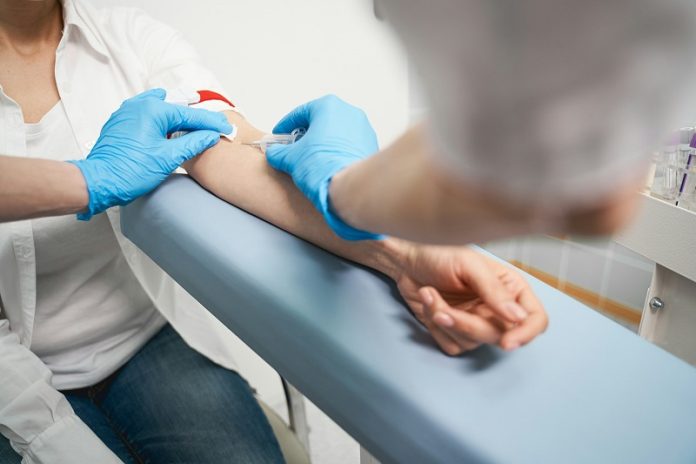
A new study suggests that certain substances in the blood may help identify people with a type of irregular heartbeat called atrial fibrillation (AFib) who are still at risk of stroke, even though they take blood-thinning medication.
These substances, known as biomarkers, can indicate heart strain, inflammation, and blood clotting.
The research was presented at a major medical conference in Chicago by Dr. Samuel Short and his team from the University of North Carolina.
Their goal was to see if blood tests could predict which patients on blood thinners might still suffer a stroke.
If doctors can identify these high-risk patients, they may be able to find better ways to protect them.
Atrial fibrillation is one of the most common types of irregular heartbeat. Instead of beating normally, the upper chambers of the heart (atria) quiver, making it harder to pump blood effectively.
As a result, some blood may not flow properly and can form clots. If a clot travels to the brain, it can cause a stroke.
To lower the risk of strokes, doctors often prescribe blood thinners. These drugs, also called anticoagulants and antiplatelets, help prevent blood from clotting. However, they do not always work for everyone. Some people taking these medications still have strokes, known as “breakthrough strokes.”
Dr. Short and his team wanted to find out if blood tests could help predict which patients on blood thinners were still at risk. This could help doctors provide better care for those who need extra protection.
The researchers studied 713 people with AFib who were taking blood thinners. Over 12 years, 67 of them (9%) had their first stroke caused by a clot. The team measured the levels of nine biomarkers in their blood—substances that have been linked to stroke risk.
They found that higher levels of four particular biomarkers, related to heart strain, inflammation, and clotting, were linked to a greater chance of having a stroke.
The results suggest that these biomarkers might help doctors identify which AFib patients are still at risk despite being on blood thinners. If doctors can recognize high-risk patients earlier, they may be able to adjust their treatment.
Currently, blood thinners are the main way to prevent strokes in people with AFib. However, this study highlights that some patients may need additional care.
One reason for breakthrough strokes could be that the medication is not strong enough for certain patients. Another possibility is that some people may not be taking their medications correctly.
Dr. Uma Srivatsa, a heart rhythm specialist from UC Davis Health who was not part of the study, said that monitoring these biomarkers could help doctors pay closer attention to high-risk patients. If someone has high biomarker levels, doctors could explore other treatment options, such as additional medications or different procedures.
While these findings are promising, they are still considered preliminary until the full study is published in a medical journal. More research is needed to see how doctors can use these biomarkers to guide treatment decisions.
In the future, doctors may be able to use a simple blood test to check for these biomarkers and adjust treatment for AFib patients at higher risk of stroke. This could improve care and help prevent life-threatening strokes in more people.
This study highlights the importance of personalized medicine. Not all AFib patients respond to blood thinners in the same way, and some need extra protection.
Identifying biomarkers in the blood may be the key to preventing strokes in those who remain at risk. While more research is needed, these findings could lead to better ways to keep AFib patients safe from stroke.
If you care about stroke, please read studies about how to eat to prevent stroke, and diets high in flavonoids could help reduce stroke risk.
For more information about health, please see recent studies about how Mediterranean diet could protect your brain health, and wild blueberries can benefit your heart and brain.
The research findings can be found here.
Copyright © 2025 Knowridge Science Report. All rights reserved.



